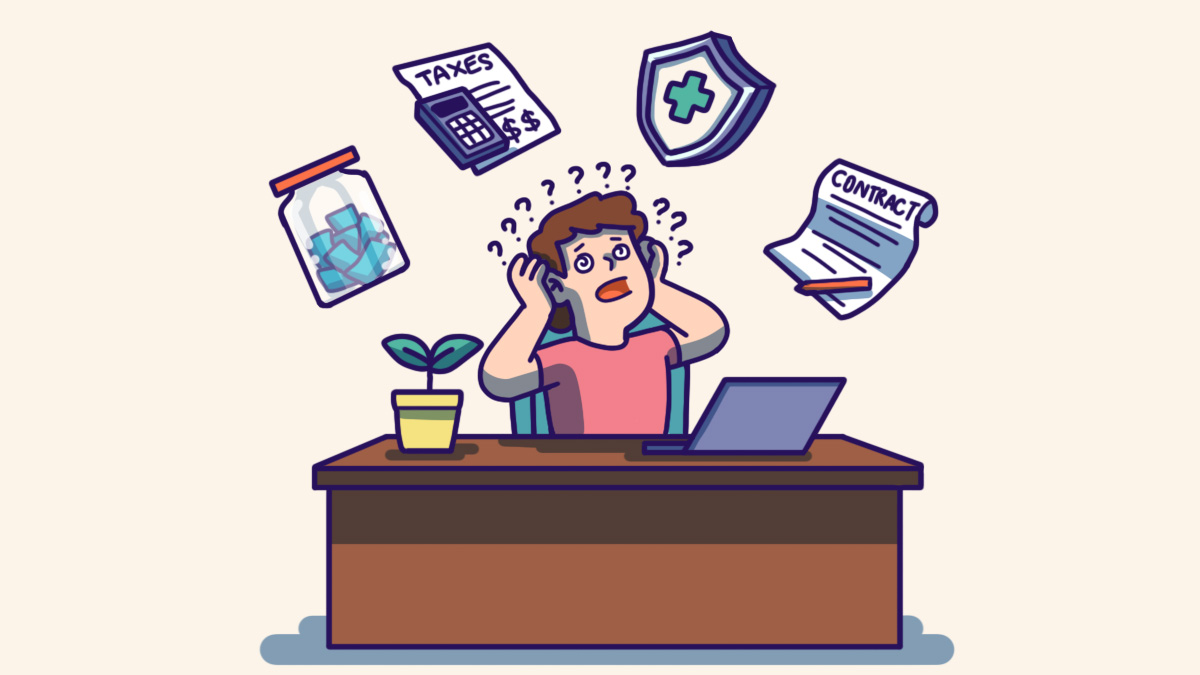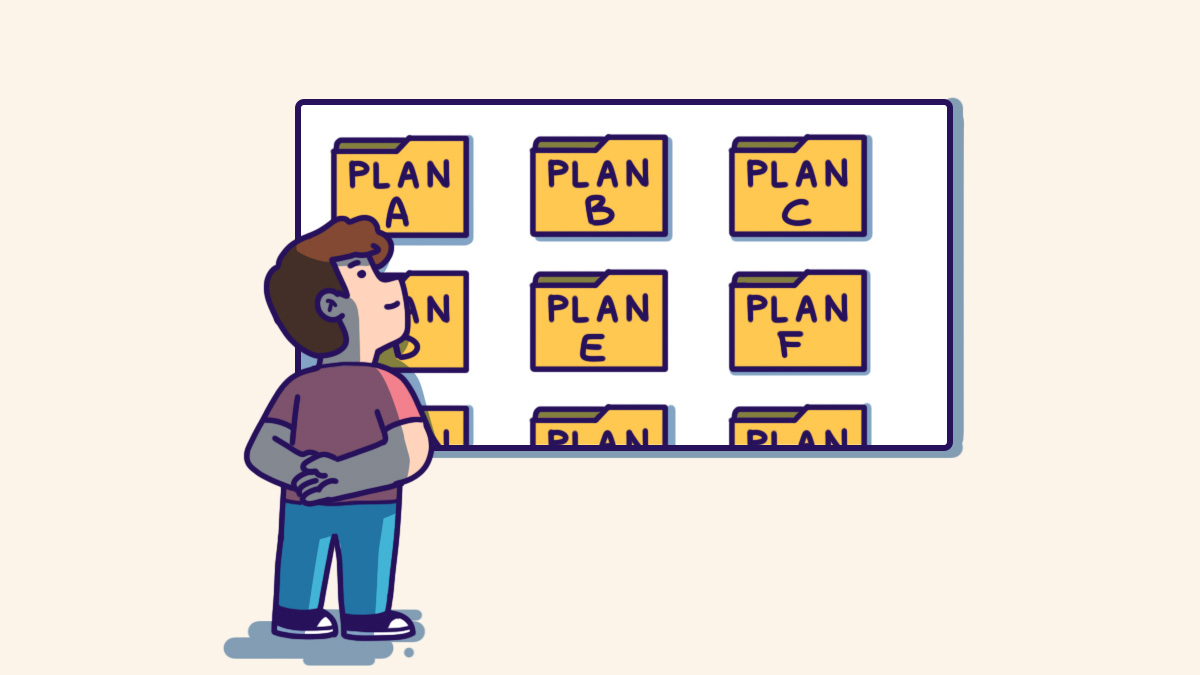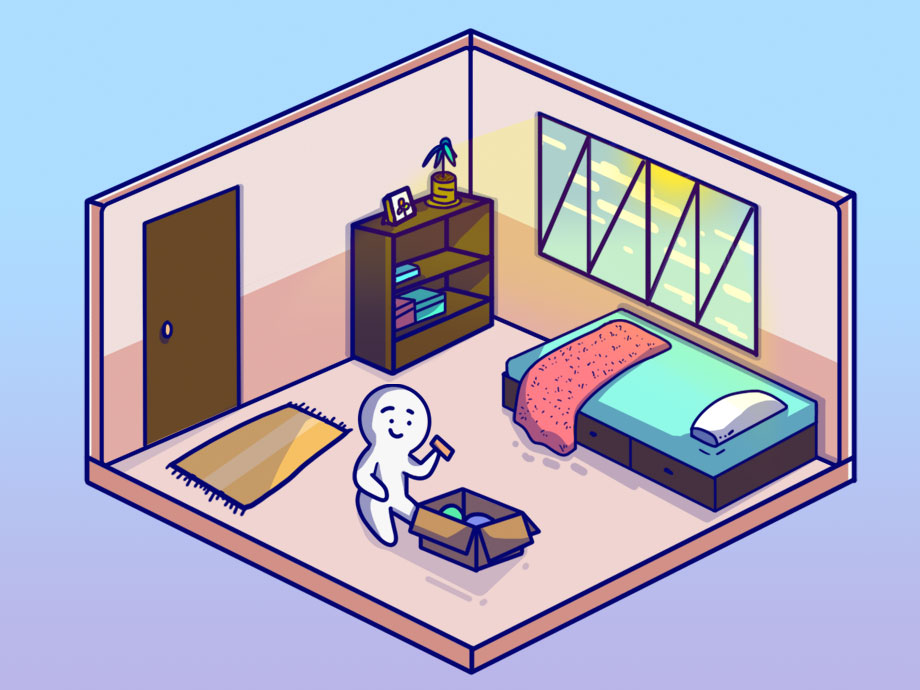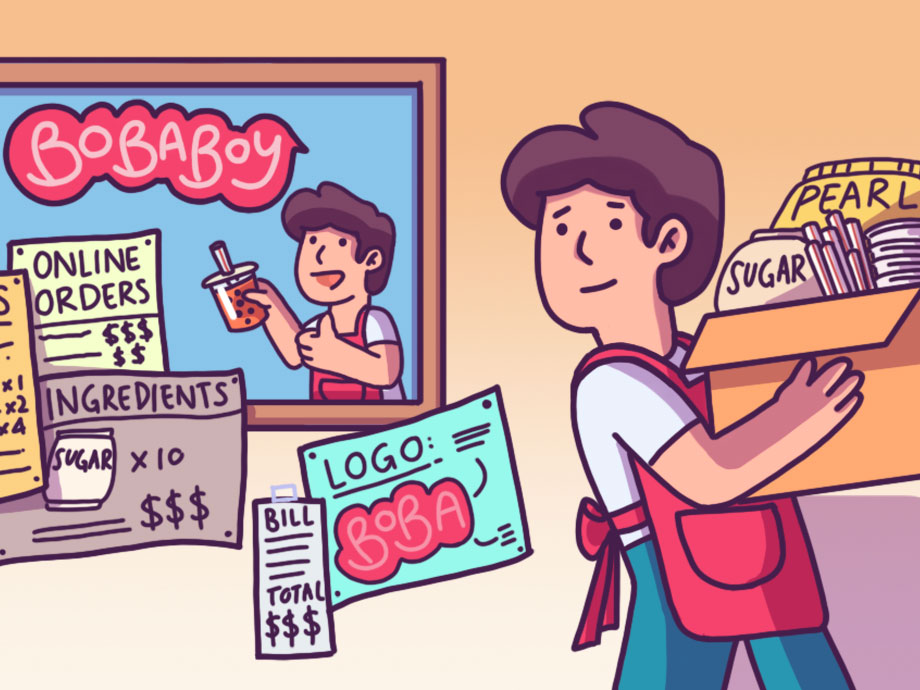Budgeting | Career & Education | Life | Personal Finance | Personal Stories | Article
Things I Wish I’d Known Before Freelancing
by Sophia | 1 Jul 2021 | 6 mins read

Freelancing always seems to sound way more exciting — and liberating! — than being stuck in a 9 to 6 job like everyone else.
I certainly thought that way in 2018 as I quit my first full-time job in favour of an “easier” life, believing that freelancing essentially meant being my own boss (somewhat), and working flexible hours was a dream come true.
And now, more than ever, in a time where remote working is the new default, you might find yourself thinking of freelancing on the side to earn a little bit more money with your spare time.
But of course, as life would have it, I learnt the hard way that unless you prepare yourself adequately for freelancing, it’s not as breezy going as I thought it was going to be.
From managing your money between gigs to figuring out how much to charge, freelancing is a whole business operation unto itself.
Looking back now, there are a lot of things I could’ve done better, and plenty of things I wish I’d gone into freelancing knowing, starting with…
Be financially liquid enough to handle emergencies
One of my biggest regrets from when I started freelancing was being too eager to leave my first job. Whatever my reasons were, they distracted me from focusing on my fundamentals: building a proper emergency fund and having enough cash savings to handle emergencies, especially medical ones.
Everyone needs an emergency fund, whether or not they’re leaving their jobs for the freelancer life or another full-time job. After all, you wouldn’t want your savings to take a hit should something unexpected happen.
Generally, as a freelancer, I would have saved up to six months’ worth of expenses — especially because I couldn’t be sure if every month was going to get me enough gigs to pay for everything, month to month. Which leads me to my next point.
Ensure I could make enough for my existing financial obligations
It wasn’t just emergencies I needed to take into consideration. Like I mentioned before, I had no guarantee that every month as a freelancer would be full of jobs, and therefore income.
What I should have done was to take a hard look at my finances, my recurring expenses (especially non-negotiable ones like insurance premiums and bills), and work out an amount I needed to earn as a baseline in order to survive, at the very least. After all, even in spite of dry months, life still has to go on, and those bills still need to be paid.
Establish competitive rates before asking for gigs
I went into freelancing quoting the lowest rates you can think of, for the articles I had to write. Looking back, I probably could have earned a lot more money if I’d just been more confident and assertive with my rates. But the problem was that I didn’t know anyone else who had been freelancing as a copywriter, and so couldn’t figure out a benchmark for my rates and went with my gut.
In this case, you shouldn’t always trust your gut — especially if you’re new to freelancing.
A quick Google search would have probably solved this issue. Just take a look at the industry standard, or look at other freelancers’ rates, and find a number that’s most comfortable for you and makes the most sense for you (i.e. how many hours you’re going to put into a job, and weighing whether the price you’re charging for those hours is justified).
Also, it’s far easier to quote a higher price from the get-go than starting low, and then meekly trying to climb your way up. It’s harder to increase your rates with clients who are already used to what you’re charging, if you don’t know how to negotiate successfully with them. (On that note, learn how to negotiate too!)
Have insurance plans in place
Freelancing basically means you’re on your own for the most part, so say goodbye to company benefits like insurance coverage and “free” visits to the clinic.
When I started freelancing, I didn’t have proper insurance plans in place — and even though nothing bad happened to me that year, it was still nerve-wracking having to think about footing the medical bill without any safety net to fall back on.
So, if given the chance, I’d go back in time to make sure I had the following plans before embarking on my freelancing journey: a hospitalisation plan, an accident plan, and a life insurance policy as well, just in case.
Related
Set terms in my invoice to protect myself from late payments (and going broke)
One of the biggest roadblocks to a smooth year in freelancing was the fact that some clients, no matter how much effort I put into reminding them, will always forget to pay me, or delay my payment unnecessarily.
It was only much later that I realised I could have sidestepped all this trouble by adjusting the terms in my invoice.
As a rule of thumb, include late payment terms in your invoice — like a 30-day policy that ensures you get paid within a month of issuing your invoice after finishing a job — so that clients are less likely to “forget” about paying what they owe you.
This will help to regulate your cash flow, so you’re not left high and dry and unable to pay your bills or even put food on the table.

Having a plan B, C, D…
You don’t need to have backup plans that are detailed, but a safety net — something to fall back on — will probably give you a peace of mind and enough security to bravely head out and work those freelance gigs.
It could come in the form of a part-time job, or knowing that there’s something you can depend on during dry months like an ad hoc job, or even another skill you can use to freelance with.
When I was freelancing, I only focused on copywriting and didn’t consider getting a part-time job to supplement my income, and sorely regretted it during empty months when my clients had no work for me. Don’t be like me — be smart.
Freelancing will teach you many things, including how scary it is to not have any income
I will admit it — I went a couple of months, consecutively, without a decent amount of work. I probably could have survived those months with the right financial fundamentals in place, like cash savings and an emergency fund, but I didn’t… and ended up making things much harder for myself than was necessary.
Having financial fundamentals in place as you start your life as a freelancer will help you more than you think. After all, even though you have more freedom with your time, the essential need to earn an income remains the same. Your expenses and budget will remain the same, no matter what job you’ve taken up this year.
The least you can do for yourself is to make sure you’re not in a precarious financial situation before taking the leap.


















